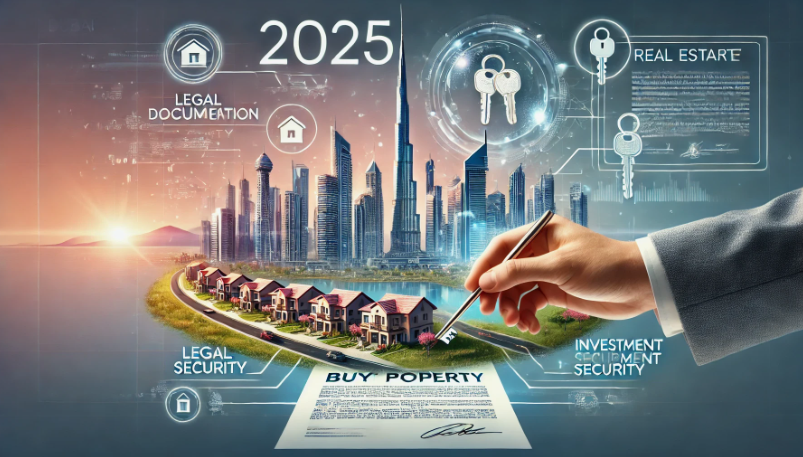How to Invest in Tokenized Real Estate in UAE Complete 2025 Guide

The United Arab Emirates has positioned itself as a global leader in blockchain innovation and digital transformation, making it an ideal destination for investors looking to explore tokenized real estate opportunities. If you’re wondering how to invest in tokenized real estate in UAE, you’re entering an exciting frontier that combines traditional property investment with cutting-edge blockchain technology. This revolutionary approach allows investors to purchase fractional ownership in premium UAE properties through digital tokens, making real estate investment more accessible, liquid, and transparent than ever before. The UAE’s forward-thinking regulatory framework and robust digital infrastructure have created the perfect ecosystem for tokenized real estate to flourish, offering both local and international investors unprecedented opportunities to diversify their portfolios.
What is Tokenized Real Estate and Why UAE Leads the Market
Tokenized real estate represents a paradigm shift in property investment, where physical real estate assets are divided into digital tokens on a blockchain network. Each token represents a fractional ownership stake in the underlying property, allowing investors to buy, sell, and trade their holdings with unprecedented ease and flexibility.
The UAE has emerged as a global pioneer in this space due to several key factors. The country’s visionary leadership has embraced blockchain technology as part of its UAE Vision 2071 strategy, creating a regulatory sandbox that encourages innovation while maintaining investor protection. Dubai’s ambition to become the world’s first blockchain-powered government by 2025 has accelerated the adoption of tokenized solutions across various sectors, including real estate.
Why Choose UAE for Tokenized Real Estate Investment
The Emirates offers unique advantages for tokenized real estate investment that set it apart from other global markets. The country’s strategic location between East and West, combined with its tax-free environment and stable political climate, makes it an attractive destination for international investors. Additionally, the UAE’s real estate market has shown remarkable resilience and growth potential, with Dubai and Abu Dhabi consistently ranking among the world’s most desirable property markets.
The regulatory clarity provided by authorities such as the Dubai Financial Services Authority (DFSA) and the Securities and Commodities Authority (SCA) has created a secure framework for tokenized investments. This regulatory support, combined with world-class infrastructure and a tech-savvy population, has positioned the UAE as the ideal testing ground for innovative real estate investment solutions.
Tokenized Real Estate in UAE: Step-by-Step Process
Understanding how to invest in tokenized real estate in UAE requires familiarizing yourself with the specific platforms, regulations, and procedures that govern this emerging market. The investment process typically involves several key steps that ensure compliance with local laws while maximizing investment potential.
Step 1: Research and Due Diligence
Before investing in any tokenized real estate project, conduct thorough research on the underlying property, the tokenization platform, and the legal structure of the investment. Examine the property’s location, rental yield potential, capital appreciation prospects, and the track record of the development team. Verify that the platform is properly licensed and regulated by UAE authorities.
Review the property’s valuation reports, legal documentation, and tokenomics structure. Understanding how tokens are priced, what rights they confer, and how returns are distributed is crucial for making informed investment decisions.
Step 2: Choose a Licensed Platform
Select a reputable tokenized real estate platform that operates legally within the UAE. Look for platforms that have obtained necessary licenses from UAE regulators and offer transparent fee structures, clear investment terms, and robust security measures. Popular platforms in the region include those backed by established real estate developers and financial institutions.
Ensure the platform provides comprehensive investor protection measures, including secure custody solutions for digital assets, insurance coverage where applicable, and clear dispute resolution mechanisms.

Step 3: Complete KYC and AML Procedures
All legitimate tokenized real estate platforms in the UAE require investors to complete Know Your Customer (KYC) and Anti-Money Laundering (AML) verification processes. This typically involves providing government-issued identification, proof of address, and source of funds documentation.
The verification process may take several days to complete, so plan accordingly. Some platforms may also require accreditation verification for certain high-value investment opportunities.
Step 4: Fund Your Account and Purchase Tokens
Once your account is verified, you can fund it using various methods including bank transfers, cryptocurrency, or other accepted payment methods. Most UAE-based platforms accept payments in AED, USD, and major cryptocurrencies.
When purchasing tokens, carefully review the investment terms, including minimum investment amounts, lock-up periods, and projected returns. Start with smaller investments to familiarize yourself with the platform and process before committing larger amounts.
Top Tokenized Real Estate Platforms in UAE
The UAE’s tokenized real estate ecosystem features several established platforms that cater to different investor preferences and risk profiles. Each platform offers unique features, property types, and investment structures.
Leading Platform Features and Offerings
Established platforms in the UAE typically offer investments in premium properties across Dubai, Abu Dhabi, and other emirates. These may include luxury residential developments, commercial office buildings, retail spaces, and hospitality assets. Many platforms provide detailed property information, including 3D virtual tours, financial projections, and regular performance updates.
The most successful platforms combine traditional real estate expertise with advanced blockchain technology, offering features such as automated dividend distributions, secondary market trading, and portfolio management tools. Look for platforms that provide transparent reporting, regular property valuations, and clear exit strategies.
Regulatory Compliance and Security
Reputable platforms prioritize regulatory compliance and investor security. They typically hold licenses from relevant UAE authorities and implement robust cybersecurity measures to protect investor funds and personal information. Many platforms also offer insurance coverage and work with established custody providers to safeguard digital assets.
Benefits of Investing in Tokenized Real Estate in UAE
Tokenized real estate investment in the UAE offers numerous advantages over traditional property investment methods. These benefits make it an attractive option for both novice and experienced investors seeking exposure to the UAE’s dynamic real estate market.
Enhanced Liquidity and Accessibility
Traditional real estate investment requires significant capital and involves lengthy transaction processes. Tokenized real estate eliminates these barriers by allowing fractional ownership with much lower minimum investments. Investors can purchase tokens representing small portions of high-value properties that would otherwise be inaccessible.
The digital nature of tokens also enables faster transactions and greater liquidity. While traditional real estate sales can take weeks or months to complete, token transfers can occur almost instantaneously, subject to platform policies and regulatory requirements.
Diversification Opportunities
Tokenization allows investors to spread their capital across multiple properties, locations, and property types with relative ease. Instead of putting all funds into a single property, investors can build diversified portfolios that include residential, commercial, and mixed-use properties across different emirates.
This diversification helps reduce risk and provides exposure to various segments of the UAE’s real estate market, from luxury Dubai Marina apartments to Abu Dhabi commercial developments.
Transparency and Efficiency
Blockchain technology provides unprecedented transparency in real estate transactions. All token ownership records, transactions, and property performance data are recorded on immutable blockchain ledgers, ensuring accuracy and preventing fraud.
Smart contracts can automate many processes, including rent collection, dividend distribution, and compliance monitoring, reducing costs and eliminating intermediaries. This efficiency translates to better returns for investors and lower operational overhead.
Risks and Challenges in UAE Tokenized Real Estate
While tokenized real estate offers significant opportunities, investors must understand and carefully consider the associated risks and challenges. A comprehensive risk assessment is essential for making informed investment decisions.
Market and Regulatory Risks
The UAE real estate market, like all property markets, is subject to economic cycles, supply and demand fluctuations, and regulatory changes. Property values can decline due to oversupply, economic downturns, or changes in government policies affecting real estate investment.
The tokenized real estate sector is still evolving, and regulatory frameworks may change as authorities gain more experience with these investments. New regulations could impact token liquidity, taxation, or investor rights.
Technology and Platform Risks
Tokenized investments rely heavily on technology platforms and blockchain infrastructure. Technical failures, security breaches, or platform shutdowns could affect investor access to their investments or result in financial losses.
Smart contract bugs or vulnerabilities could lead to unintended consequences or exploitation by malicious actors. While blockchain technology is generally secure, the platforms and applications built on top of it may have vulnerabilities.
Liquidity and Market Depth
While tokenization aims to improve liquidity, secondary markets for real estate tokens are still developing. Investors may face challenges selling their tokens quickly or at fair market prices, especially during market downturns or for less popular properties.
The relatively small size of the tokenized real estate market means that large transactions could significantly impact token prices, creating volatility that may not reflect underlying property values.
Regulations for Tokenized Real Estate in UAE
The UAE has developed a comprehensive regulatory framework to govern tokenized investments while fostering innovation in the fintech and blockchain sectors. Understanding these regulations is crucial for both platforms and investors.
Federal and Emirate-Level Regulations
The UAE’s federal government has established overarching principles for blockchain and cryptocurrency regulation, while individual emirates have developed specific frameworks for their jurisdictions. Dubai and Abu Dhabi have been particularly proactive in creating regulatory sandboxes and clear guidelines for tokenized investments.
The Securities and Commodities Authority (SCA) provides federal oversight for securities-related activities, while the Dubai Financial Services Authority (DFSA) regulates activities within the Dubai International Financial Centre (DIFC). These authorities have issued guidance on when tokens may be considered securities and what compliance requirements apply.
Investor Protection Measures
UAE regulations emphasize investor protection through requirements for proper disclosure, risk warnings, and suitability assessments. Platforms must provide clear information about investment risks, fees, and the rights associated with token ownership.
Anti-money laundering (AML) and counter-terrorism financing (CTF) regulations require platforms to implement robust KYC procedures and monitor transactions for suspicious activity. These measures help maintain the integrity of the financial system while protecting legitimate investors.
Tax Implications and Considerations
The UAE’s tax-free environment extends to many aspects of tokenized real estate investment, but investors should understand the specific tax implications of their investments. While the UAE generally does not impose capital gains tax or income tax on individuals, there may be fees, charges, or taxes related to token transactions or property ownership.
International investors should also consider the tax implications in their home countries, as many jurisdictions are developing specific rules for cryptocurrency and token investments.
Read More: How to Invest in Tokenized Real Estate in UAE Complete 2025 Guide
Future Outlook for Tokenized Real Estate in UAE
The future of tokenized real estate in the UAE appears exceptionally promising, driven by continued government support for blockchain innovation and growing investor interest in digital assets.

Government Initiatives and Support
The UAE government continues to invest heavily in blockchain infrastructure and regulatory development. The Emirates Blockchain Strategy 2071 aims to make the UAE a global leader in blockchain adoption, with real estate tokenization playing a significant role in this vision.
Recent government initiatives include the establishment of blockchain-based land registries, digital identity systems, and smart city projects that integrate tokenized real estate solutions. These developments create a supportive ecosystem for continued growth in the sector.
Market Growth Projections
Industry analysts project significant growth in the UAE’s tokenized real estate market over the next decade. Factors driving this growth include increasing investor awareness, improving technology infrastructure, and expanding regulatory clarity.
The market is expected to attract both retail and institutional investors as platforms mature and offer more sophisticated investment products. Integration with traditional financial services and the development of secondary markets will further enhance the appeal of tokenized real estate investments.
Technological Advancements
Emerging technologies such as artificial intelligence, Internet of Things (IoT), and advanced analytics are being integrated with blockchain platforms to create more sophisticated investment solutions. These technologies enable better property valuation, predictive maintenance, and automated investment management.
The development of central bank digital currencies (CBDCs) and improved blockchain scalability solutions will further streamline tokenized real estate transactions and reduce costs for investors.
Essential Tips for Successful Tokenized Real Estate Investment in UAE
Maximizing success in UAE tokenized real estate investment requires a strategic approach that combines traditional real estate knowledge with understanding of blockchain technology and digital asset markets.
Investment Strategy Development
Develop a clear investment strategy that aligns with your financial goals, risk tolerance, and investment timeline. Consider whether you’re seeking rental income, capital appreciation, or portfolio diversification. Different tokenized real estate investments may better serve different objectives.
Set clear investment criteria, including preferred property types, locations, investment amounts, and expected returns. This framework will help you evaluate opportunities consistently and avoid emotional decision-making.
Risk Management Techniques
Implement proper risk management by diversifying across multiple properties, platforms, and investment types. Avoid concentrating too much capital in any single investment, regardless of how attractive it may appear.
Stay informed about market trends, regulatory developments, and platform updates. Regular monitoring of your investments and the broader market will help you make timely decisions about buying, holding, or selling tokens.
Due Diligence Best Practices
Always conduct thorough due diligence on properties, platforms, and investment terms before committing funds. Review legal documentation, financial projections, and platform security measures. Don’t hesitate to ask questions or seek professional advice when needed.
Verify platform credentials, regulatory compliance, and the track record of the management team. Look for platforms that provide regular updates, transparent reporting, and responsive customer support.
Summary
Learning how to invest in tokenized real estate in UAE opens doors to exciting opportunities in one of the world’s most dynamic property markets. The UAE’s progressive regulatory framework, combined with its robust blockchain infrastructure and attractive real estate fundamentals, creates an ideal environment for tokenized property investment.
Success in this emerging market requires careful research, platform selection, and risk management. By following the comprehensive guidance outlined in this article, investors can navigate the tokenized real estate landscape with confidence and potentially benefit from the UAE’s continued economic growth and technological innovation.
The future of real estate investment is being written in the UAE, and tokenization is at the forefront of this revolution. Whether you’re a seasoned property investor or new to real estate markets, now is an opportune time to explore how tokenized real estate can enhance your investment portfolio.
FAQs
Q1. What is the minimum investment amount for tokenized real estate in UAE?
The minimum investment amount varies by platform and property, but many UAE tokenized real estate platforms allow investments starting from as low as AED 1,000 to AED 10,000. This accessibility is one of the key advantages of tokenization compared to traditional real estate investment.
Q2. Are tokenized real estate investments in UAE regulated?
Yes, tokenized real estate investments in UAE are subject to regulation by various authorities including the Securities and Commodities Authority (SCA) and emirate-specific regulators like the Dubai Financial Services Authority (DFSA). Platforms must comply with licensing requirements and investor protection measures.
Q3. How are returns distributed in tokenized real estate investments?
Returns are typically distributed through smart contracts that automatically allocate rental income and capital gains to token holders based on their ownership percentage. Most platforms distribute returns monthly or quarterly directly to investors’ digital wallets or platform accounts.
Q4. Can international investors participate in UAE tokenized real estate?
Yes, most UAE tokenized real estate platforms welcome international investors, though they must complete KYC/AML verification processes. Some platforms may have restrictions based on investor nationality or residence due to regulatory requirements.
Q5. What happens if the tokenized real estate platform shuts down?
Reputable platforms implement safeguards such as asset custody solutions and legal structures that protect investor interests even if the platform ceases operations. However, this risk underscores the importance of choosing established, well-regulated platforms with proper investor protections in place.
